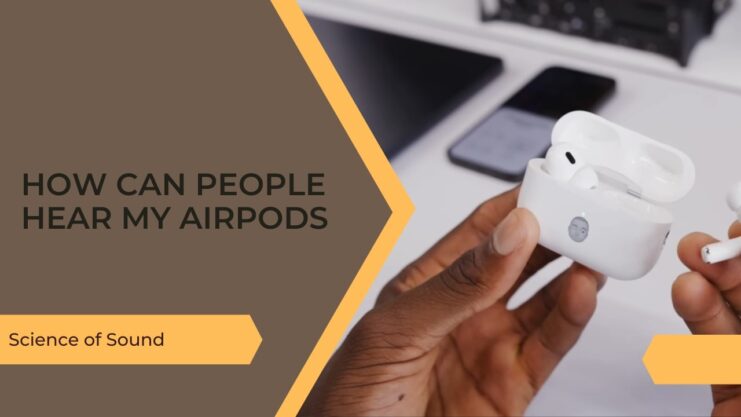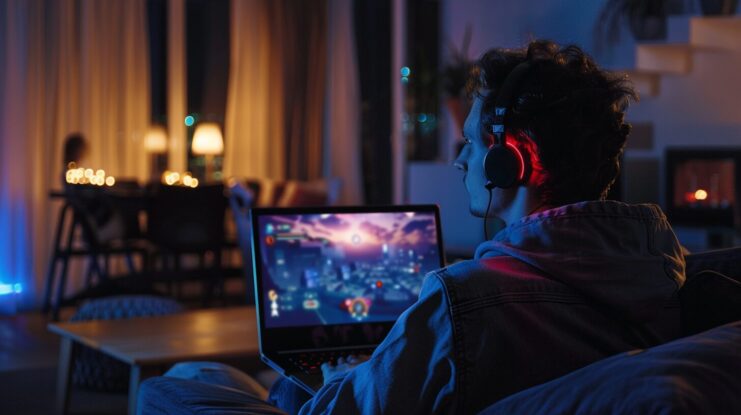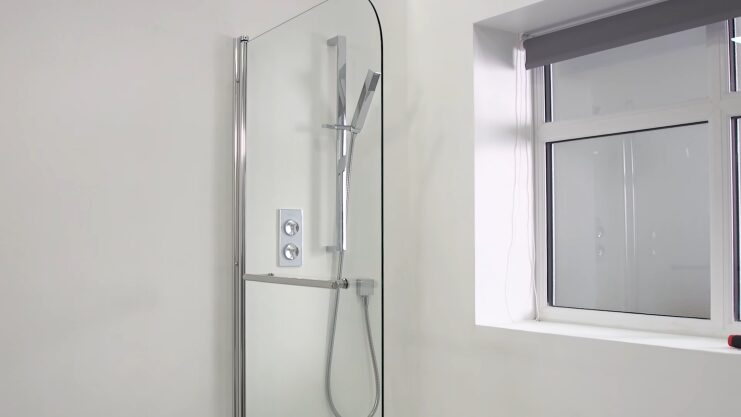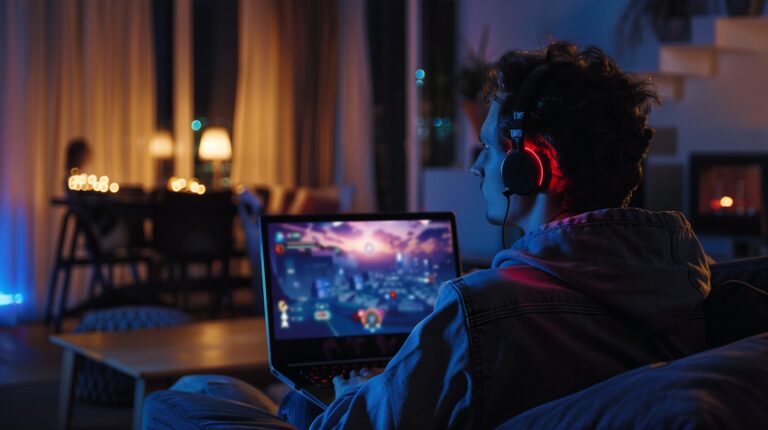Audio technology has come a long way, making it possible for us to have private soundscapes anywhere and at any time. While portable audio devices are typically designed to give the user an exclusive and personal audio experience, there can be instances where that sound isn’t quite as contained as we might think.
Ever been asked to turn down your AirPods because someone else can hear them, and you’re left wondering, “How can people hear my AirPods?”
Don’t worry; you’re not alone. This article will help you understand what causes sound leakage, whether your AirPods are designed to leak sound, and what you can do to ensure your audio experience remains personal and exclusive.
Understanding Sound Leakage
Firstly, let’s understand what we mean by ‘sound leakage.’ This term refers to the phenomenon when audio, which should ideally be contained to the listener’s ears, escapes into the surrounding environment. This can be slightly embarrassing, especially if you’re enjoying your favorite guilty pleasure track or listening to an audiobook in a quiet place!
Do AirPods Leak Sound?
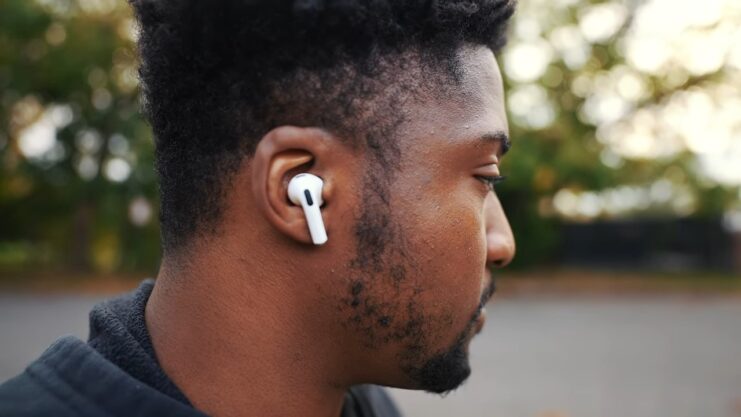
Yes, they do, but not because of a design flaw. AirPods, just like most earbuds, do allow for some level of sound leakage. The extent of this sound escape, however, depends on several factors, like your volume levels, the ear tips’ fit, and the nature of the audio you’re listening to.
1. Volume Levels
Perhaps the most obvious factor affecting sound leakage is the volume at which you’re listening to your audio. If your volume is cranked up to maximum, there’s a higher likelihood that sound will escape, and others may be able to hear it.
2. Ear Tip Fit
Apple provides three different sizes of ear tips with its AirPods Pro to accommodate different ear sizes. The right fit can create a seal that minimizes sound leakage. However, if the ear tips are too small or too large, they might not fit your ears properly, resulting in sound escape.
3. Nature of the Audio
If you’re listening to heavy metal music or a podcast with lots of loud moments, these sounds can potentially leak out. Quieter audio content, such as ambient music or soft-spoken podcasts, are less likely to be noticeable to those around you.
How Can You Prevent Sound Leakage?
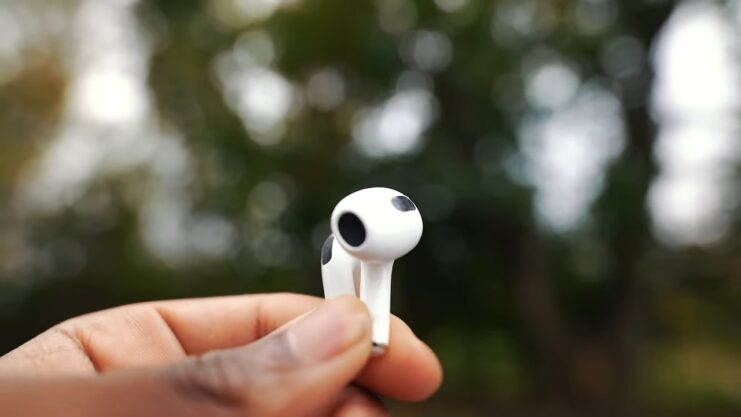
Now that we’ve understood what causes sound leakage let’s look at some practical ways you can minimize it and keep your audio experience personal.
1. Choose the Right Volume
This one is pretty straightforward — lowering your volume can reduce the amount of sound that escapes from your AirPods. It’s also worth noting that listening at high volumes can potentially damage your hearing over time, so keeping the volume at a reasonable level is a good practice for multiple reasons.
2. Find Your Perfect Fit
Ensure that you’ve chosen the right size ear tips for your ears. If the ear tips are too small or too large, they won’t create a proper seal and can contribute to sound leakage.
3. Use Noise Cancellation
AirPods Pro comes with an Active Noise Cancellation feature. This reduces the need to increase your volume in noisy environments, thus helping to prevent sound leakage. It’s a handy feature that not only offers a better listening experience but also maintains your audio privacy.
4. Consider the Environment
If you’re in a library or another quiet place, be aware that any sound leakage will be more noticeable than if you’re in a busier, louder environment. You might need to lower your volume more than you usually would in these settings.
5. Try Different Audio Content
If you’re concerned about sound leakage, you could consider listening to different types of audio content. For example, if you’re in a public place and don’t want to disturb others, you might choose to listen to softer music or quieter podcasts.
The Design Aspects of AirPods That Contribute to Sound Leakage
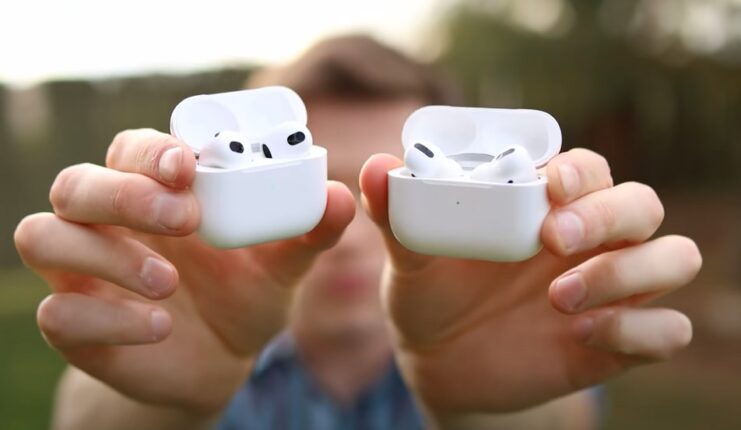
While we’ve covered the basics of sound leakage, there are specific design aspects of AirPods that further influence this phenomenon. Understanding these will offer a deeper insight into why others can sometimes hear your AirPods.
1. Open-Back Design
AirPods, especially the standard model, feature what is known as an open-back design. This design allows air and sound to pass freely in and out of the earbud. It’s part of what gives AirPods their natural, open sound quality. However, the trade-off for this design is increased sound leakage, especially at higher volumes.
2. Driver Size and Power
The driver is the part of the headphone that produces sound. The size and power of the driver can affect sound leakage. While Apple does not officially disclose the driver size in AirPods, more powerful drivers can create louder sound levels, which can lead to more sound leakage.
The Science of Sound
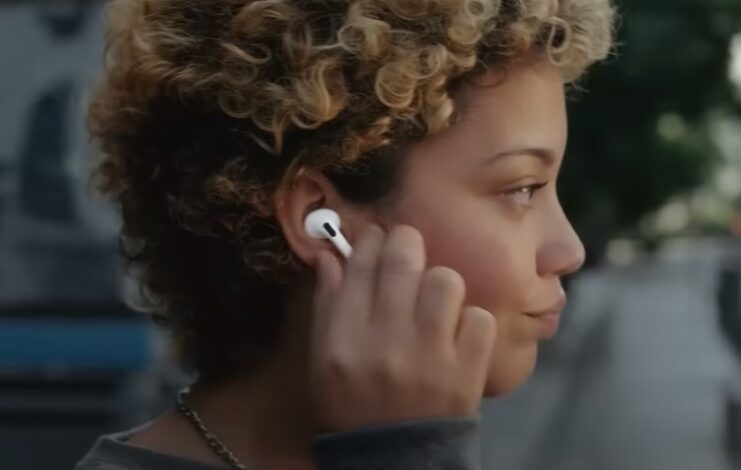
To further our understanding of sound leakage, let’s delve into the science of sound. Sound travels in waves through the air and other mediums. These waves vibrate the tiny bones in our ears, which our brains interpret as sound. When you listen to music on your AirPods, the sound waves are directed into your ear. If the ear tips don’t form a tight seal, some of the sound waves can escape and reach other people’s ears.
Sound Leakage vs. Sound Isolation
Sound leakage is closely related to sound isolation – another important aspect of headphone design. Sound isolation refers to how well the headphones block out external noises. Good sound isolation means fewer outside noises get in and fewer internal sounds (like your music) get out.
AirPods Pro, unlike the regular AirPods, come with silicone ear tips and feature an in-ear design, which improves sound isolation. They also offer Active Noise Cancellation (ANC), which uses advanced technology to counteract external noise. While this feature primarily enhances your listening experience by blocking out unwanted noise, it indirectly helps to reduce sound leakage by reducing the need to crank up the volume.
Does Sound Quality Affect Sound Leakage?
Interestingly, the sound quality can also have an impact on sound leakage. Poorly compressed audio files or low-quality streaming can often lack clarity at lower volumes, tempting you to turn up the volume. However, listening at higher volumes increases the chance of sound leakage. Therefore, for a private listening experience and better audio quality, it’s advisable to opt for high-quality audio files or high-quality streaming settings, if available.
Final Words
To conclude, there’s a lot more to sound leakage than meets the eye. It’s a nuanced issue intertwined with the design of your AirPods, the science of sound, and even the quality of your audio files. By understanding these factors, you can enhance your private listening experience and reduce the chance of others overhearing your audio.
So, the next time you put on your favorite song or podcast on your AirPods, remember these insights and enjoy your personal audio bubble!
Related Posts:
- Why Do Airpods Charge So Fast? Exploring the…
- Understanding Vulvovaginal Candidiasis: The Itch You…
- How Many Terms Can A President Serve? Twenty-Second…
- Can a 4K Monitor Run 1440P? - Difference Between Them
- Why Are Snapchat Bots Adding Me Randomly? How Can I…
- Can I Use Any Coaxial Cable For The Internet? -…

